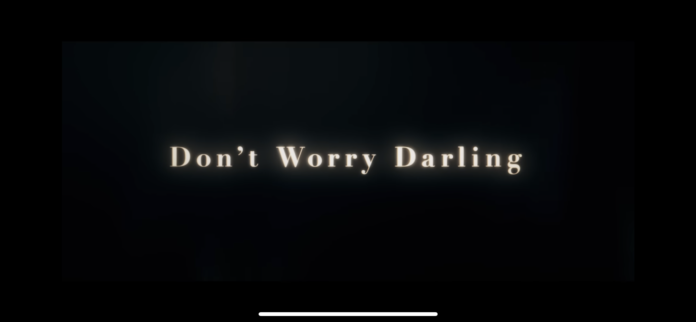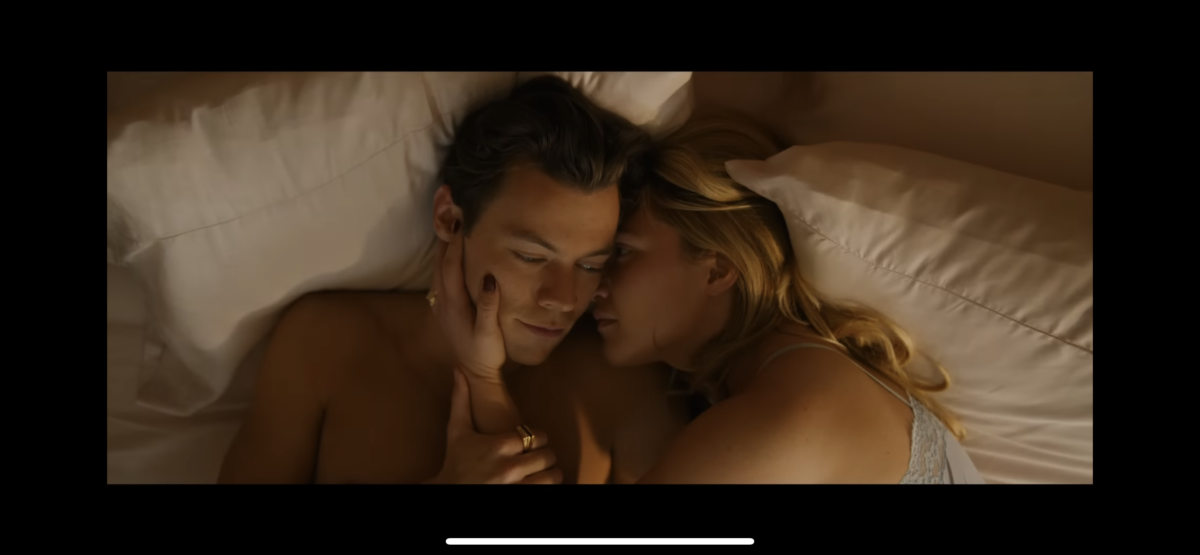

Olivia Wilde’s Booksmart was a really good movie. A modern feminist reimagining of Superbad and other trashy 2000s sex comedies. It didn’t try to reinvent the wheel and at the end of the day, it was a fun comedy with great writing and a good cast.
So when the trailers for Wilde’s new film, Don’t Worry Darling, were released, I was excited.
While my friends and I cracked jokes that it looked like a version of Get Out for white women, we were still hyped for its release. Of course, as the date inched closer and closer, it was hard not to become skeptical of the project.
Between Harry Styles’ blatant ineptitude at behaving like a normal human being during the press cycle, the director’s mistreatment of actors and even the attempts to replace Chris Pine with Shia Labeouf, one could be forgiven for being worried about Don’t Worry Darling’s trajectory.
Then it came out.
I didn’t like Don’t Worry Darling; it was overly long, often poorly acted, questionably written and genuinely offensive as far as faux-feminist media goes, often working more as a parody of Get Out than a genuine attempt at more subtle and satirical “elevated horror.”
This isn’t to say that everything about the movie was bad, Florence Pugh and Chris Pine both did great. The brief moments they were together had me glued to the screen. Even with poor writing, the pair managed to make the most of it. If the film had more scenes of their interactions, it would have been much better.
On the other hand, the film talks down to its audience. Every time Chris Pine or anyone deemed to be the bad guy walks on screen, an obnoxious stinger plays — it almost becomes comical.

Speaking of comedy, Harry Styles’ performance is the funniest thing ever put on screen.
Several audience members broke out into laughter during his screaming fits, and his often Jim Carrey-esque facial expressions weren’t helped by the editing. Harry’s performance is not the biggest issue the movie faces. In fact, it’s not even close.
This film’s brand of modern feminism is surface-level at its best and genuinely offensive at its worst. Don’t Worry Darling has the gall to label itself as feminist and progressive, yet still falls into the trope of killing off Black characters first.
The entire movie takes place in a 1950s suburban utopia, a time of horrible violence and oppression. It mistreats its characters of colour to the point where they are not actually characters; just a means to progress the plot so the leading white woman can achieve catharsis and self-actualization.
There is no real critique of modern society to be found in Don’t Worry Darling; nothing of value is said beyond a bored shrug and a “yeah, men suck.” Which, yes, men do suck. But, we live in a world where intersectionality is at the forefront of modern feminism. There is more to feminism than men sucking and women being abused.
This isn’t even to say all feminist films need to be overly complicated. They don’t — you can have feminist movies that don’t delve into deeper levels of theory and politics. There are intelligent, genuine deconstructions of patriarchal and capitalist violence in media that have more going for them than “men suck”.
Watch Portrait of a Lady on Fire, watch Raw, watch Lady Bird, watch Shiva Baby. These are feminist movies directed by women that have something of depth to say. Do not waste your time on meanspirited and — hopefully unintentionally — racist, borderline misogynistic trash.
Your time is worth more than a filmmaker’s ego.
